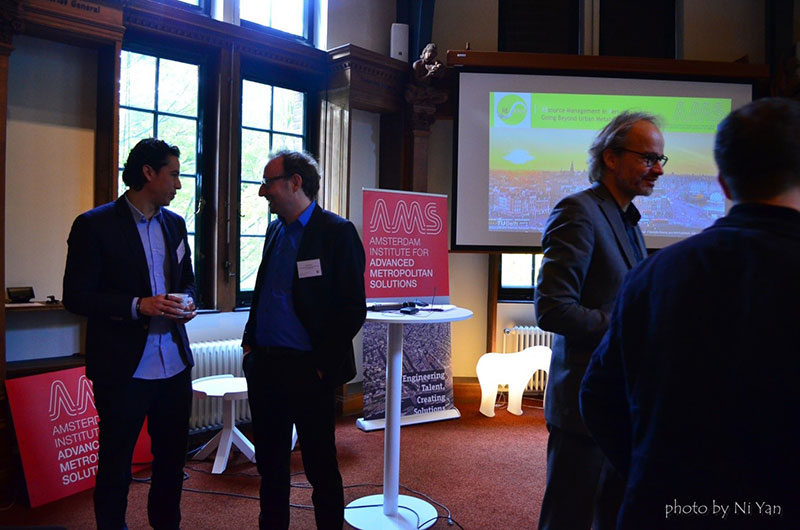REPAiR kick-off meeting with project partners and external stakeholders from the User Board (UB) members. Crucial substantive and organizational aspects of REPAiR were considered. It was a fruitful meeting with a lot of intensive and constructive discussions.
On Thursday, November 3 Consortium members discussed on ‘Developing a Common Approach for REPAiR.’ Key flows, impact categories and indicators have to be delineated in the common approach. How to limit ourselves? How do we represent the different aspects? How do we represent flows, morphology and physiology?
Participants of the meeting visited the Circular Expo in Haarlemmermeer, where – the gathered project partners listened to presentation devoted to Amsterdam and Naples Pilot Cases in order to get an overview on the two pilot case studies and understanding of their needs/requirements and challenges. Later, the follow up case studies were presented and discussed: Ghent, Pécs, Hamburg and Łódź.
On Friday November 4, the Project meeting commenced with the Eco Innovative Solutions Workshop. The session began with a presentation highlighting the importance to understand eco-innovative solutions beyond the production cycle and to include social, cultural spatial aspects. The participants split up in groups to develop eco-innovative solutions for the challenges developed the day before.
Béla Atzél, project advisor of the European Commission for REPAiR joins the meeting via skype and introduces his agency (EASME) to the consortium. He also presents the key administrative, legal and financial aspects of the grant agreement.
Subsequent session was devoted to Sustainability Indicators and Modelling. The basics of LCA (life-cycle analyses) were presented, focusing on how LCA indicators can be combined into an assessment framework. She finished her presentation with the following challenges:
- The spatial/geographical boundaries do not match with the LCA boundaries
- What do we want to assess : Local impacts within the peri-urban level in addition to global
impacts related to the full waste management process-chain? - What are local/global impacts relevant to be considered in REPAiR?
- At which level do we want a circular economy?
- LCA = data-intensive: what about data-availability?
- What will be the functional unit of a specific case study?


